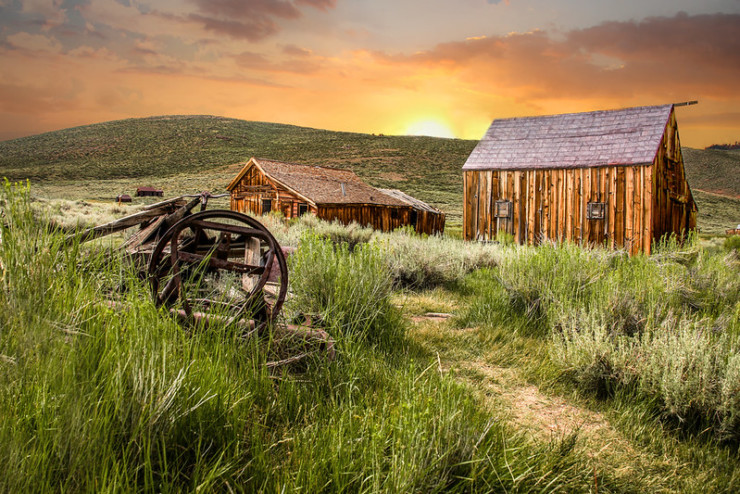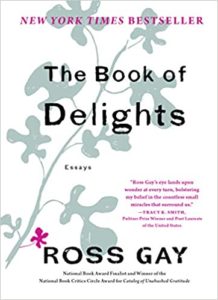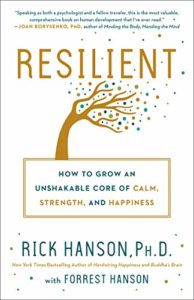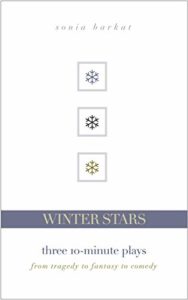Once upon a time, I believed I had a calling, the kind one believes one gets in a highly specific fashion. I do think some people have callings, both of a specific and a more general nature. And it is good, for all of us, that these callings be pursued enthusiastically. In my case, as it turned out, it seemed the call may have been coming from inside the house. Which is to say, I think it was less a calling and more a thing I put into my own head.
John O’Donohue talks about calling, and haunting, in the same breath. And in my own experience, the idea of haunting seems to have more resonance. In the opening of his chapter on “Calling,” he relates being asked, “What is it that haunts you?” His reply? “The sense of time slipping through my fingers like fine sand. And there is nothing I can do to stop it.”
It doesn’t seem unreasonable to think that we all have a thing that haunts us. Whether it’s O’Donohue’s inability to slow time (and presumably, his ultimate demise) or regrets or missed opportunities or the big thing in life we just can’t seem to get done. And it all could likely be traceable back to our deep desire for permanence, or transcendance.
In To Bless the Space Between Us, O’Donohue writes that “From time immemorial it has been one of the deepest longings of the human heart to strain against the erosion of one’s life, to find a way of living and being that manages to find some stable ground within time, a place from where something eternal can be harvested from our disappearance.” There are those who say that writers write in great part to try to preserve this sense of the eternal, the immortal. To not be forgotten.
I don’t think it is as important to me not to be forgotten as to be at rest with how I will be remembered. And that, perhaps, is the thing that haunts me. This haunting is what O’Donohue seems to like to consider a calling. “The challenge,” he writes, “is to find a way of life that will be in harmony with your gifts and needs.” A calling, then, in perhaps the more general sense.
He includes several blessings for those more specific types of callings: the priest, the farmer, the nurse. But he also reaches into that more nebulous, non-specific kind of calling toward a way of being, with a blessing “For the Unknown Self”:
Thus it knows to dwell in you gently,
Offering you only discrete glimpses
of how you construct your life.
At times it will lead you strangely,
Magnetized by some resonance
That ambushes your vigilance.
It works resolutely at night
As the poet who draws your dreams,
Creating for you many secret doors,
Decorated with pictures of your hunger;
It has the dignity of the angelic
That knows you to your roots,
Always awaiting your deeper befriending
To take you beyond the threshold of want,
Where all your diverse strainings
Can come to wholesome ease.
With a sense of that eternal desire, he concludes his collection, fittingly, with a chapter on conclusions: “Beyond Endings.” He notes (and perhaps this is why our sense as we look toward endings can be aptly described as a haunting) that “Endings seem to lie in wait.” They’re sneaky, waiting and watching for their moment. Or maybe it’s not fair to the ending to say it’s sneaky when it might be more true to say we are not present to its arrival. O’Donohue suggests that there could be an “instinctive survival mechanism in us that distracts us from the inevitability of an ending.” We are, he goes on to say, more present to the present for good reason. “Were we to be haunted by the prospect of an ending, we could not give ourselves with freedom and passion.”
O’Donohue reflects that endings can be a mix of outcomes. Sometimes a glimpse of an imminent end gives us the opportunity to change course, “with difficulty and concentrated care,” to work toward restoring the situation. And in other cases, we are not inclined to change that outcome, as the ending itself will offer such a sense of relief from the pain of the ongoing condition.
In any case, what we know to be true is that “endings are natural.” They are a part of every process. And sometimes the ending represents a beginning. He suggests that our current preoccupation with closure can sometimes eclipse those new beginnings, writing that “[closure] is not faithful to the open-ended rhythm of experience.” He prefers instead to use the word “completion,” explaining that “each experience has within it a dynamic of unfolding and and a narrative of emergence.”
O’Donohue offers blessings for these endings, and toward a sense of completion, including one for “The Inner History of a Day”:
No one knew the name of this day;
Born quietly from deepest night,
It hid its face in light,
Demanded nothing for itself,
Opened out to offer each of us
A field of brightness that traveled ahead,
Providing in time, ground to hold our footsteps
And the light of thought to show the way.
He includes a number of blessings for difficult times in relationships: for times of betrayal, for breakups, for times someone has done you wrong, for lost friends. In “For Broken Trust,” he adds these lines:
A deeper light to anoint the eyes,
Passion that opens wings in the heart,
A subtle radiance of countenance:
The soul ready for its true other.
But he looks at happier endings too. In “Retirement,” he urges the reader to still be forward-looking.
You stand on the shore of a new invitation
To open your life to what is left undone;
Let your heart enjoy a different rhythm
When drawn to the wonder of other horizons.
He closes the collection with his own sort of completion, a blessing simply called “Vespers.”
After the day’s frenzy, may the heart grow still,
Gracious in thought for all the day brought,
Surprises that dawn could never have dreamed:
The blue silence that came to still the mind,
The quiver of mystery at the edge of a glimpse,
The golden echoes of worlds behind voices.
May you, in this week, experience that blue silence, the stilling of the mind, and may all your diverse strainings come to wholesome ease.
Check out our earlier conversations about the book:
Book Club Announcement
June 10: Introduction, Beginnings (Ch. 1) & Desires (Ch. 2)
June 17: Thresholds (Ch. 3), Homecomings (Ch. 4) & States of Heart (Ch. 5)
June 24: Callings (Ch. 6), Beyond Endings (Ch. 7) & To Retrieve the Lost Art of Blessing
Join us for our upcoming summer book club discussions:
Soon, we’ll kick off our summer quarter book club. Beginning in July, we’ll find our own delight sharing The Book of Delights together, a collection of “essayettes” by poet Ross Gay. The book is the result of his year-long daily practice of finding small delights, “a spirited collection of short lyric essays, written daily over a tumultuous year, reminding us of the purpose and pleasure of praising, extolling, and celebrating ordinary wonders.” The New York Times Book Review said that “The delights he extols here (music, laughter, generosity, poetry, lots of nature) are bulwarks against casual cruelties. As such they feel purposeful and imperative as well as contagious in their joy.”
In August, we’ll read Resilient: How to Grow an Unshakeable Core of Calm, Strength, and Happiness by Rick Hanson. Resilience is a quality that is important not just in crisis, but in everyday living. Combining neuroscience, mindfulness and psychology, Hanson works toward development of “twelve vital inner strengths hardwired into your own nervous system” to learn how to cope and thrive.
Finally, in September, we’ll go to the theatre with Sonia Barkat for Winter Stars: Three 10-Minute Plays: From Tragedy to Fantasy to Comedy. These compact little plays carry deep truths we’ll explore together.
Photo by Rennett Stowe; Creative Commons license via Flickr. Post by Will Willingham.
- Earth Song Poem Featured on The Slowdown!—Birds in Home Depot - February 7, 2023
- The Rapping in the Attic—Happy Holidays Fun Video! - December 21, 2022
- Video: Earth Song: A Nature Poems Experience—Enchanting! - December 6, 2022




L.L. Barkat says
I have *really* loved this book club. Thank you for leading us into his words so deftly, and leading us back out of them into our lives so gently.
Will Willingham says
I think this is a type of book I may not have picked up otherwise, but I am very glad I did. And reading them as a whole has given more weight to each one individually. 🙂
laura boggess says
I agree with Laura. I’ve enjoyed reading this book and hearing your thoughts. I’ll be revisiting some of these blessings as occasions arise.
Megan Willome says
Agreed. I would never have picked this up, and it’s spurred writing I never would have done, otherwise. It’s given me a framework–the blessing–to write some unwritables.
Thanks for being our guide, Will.